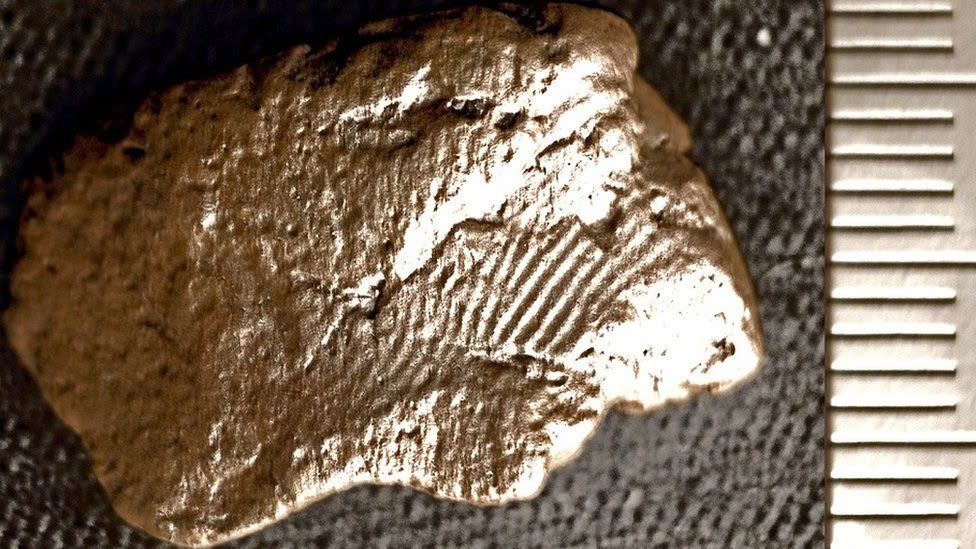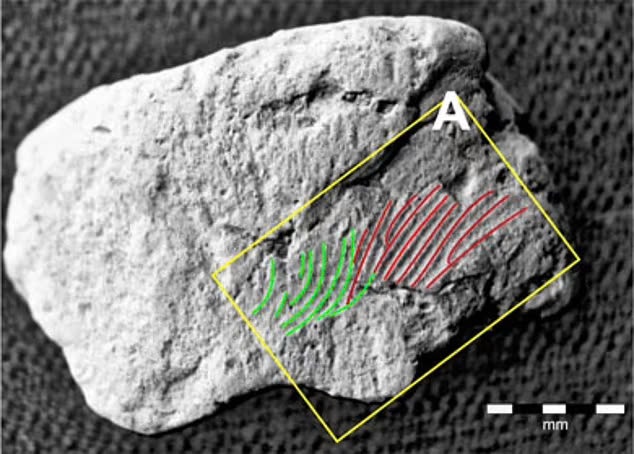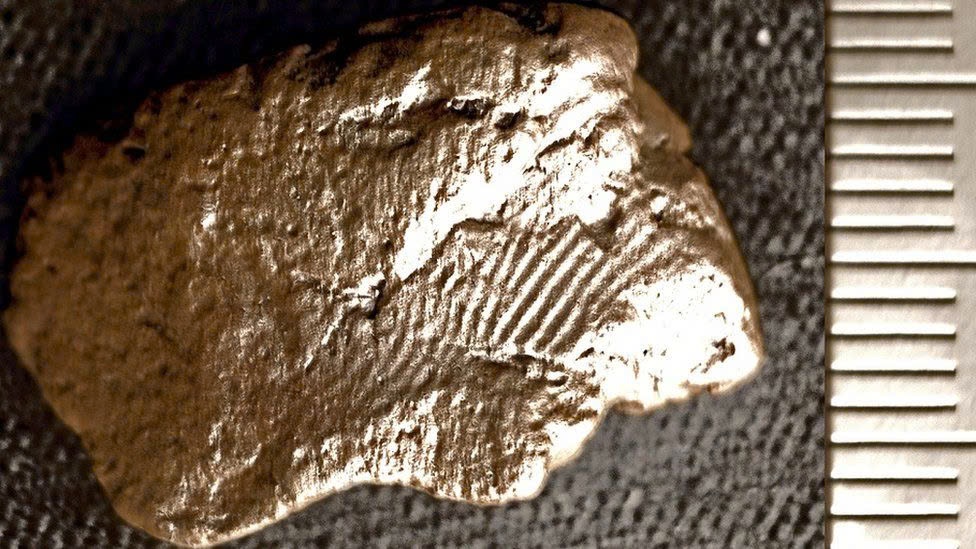5,000-Year-Old Potter’s Mark Discovered on Clay Vessel
Unearthing History at the Ness of Brodgar
In a remarkable archaeological discovery, a 5,000-year-old fingerprint has been found on a pottery fragment in the Orkney archipelago, northern Scotland. This finding provides a tangible connection to one of Europe’s oldest historical settlements.

The fingerprint was uncovered during ongoing excavations at the Ness of Brodgar, a Neolithic site within the Heart of Neolithic Orkney World Heritage Site. Archaeologists from the University of Highlands and Islands (UHI) have been meticulously exploring this complex since 2006, yielding numerous significant artifacts.
Cutting-Edge Technology Reveals Ancient Artistry

Roy Towers, a ceramics specialist, first noticed the potential fingerprint while examining sherds from the site’s extensive collection of late Neolithic Grooved Ware pottery – the largest in the UK. The print was subsequently confirmed using Reflectance Transformation Imaging (RTI), an advanced imaging technique that combines multiple photographs with varying light sources to create a highly detailed digital model.
A Personal Touch from the Past
This rare find offers archaeologists a unique opportunity to learn more about the individuals who created these ancient vessels. Researchers hope that further analysis of the fingerprint may reveal the potter’s age and gender, providing invaluable insights into Neolithic craft practices.

Nick Card, the excavation director, emphasized the human element of this discovery: “Working on such a high-status site as the Ness of Brodgar, with its beautiful buildings and stunning range of artifacts, it can be all too easy to forget about the people behind this incredible complex. This discovery really does bring these people back into focus.”

While the fingerprint may not dramatically alter the course of research at the site, it offers an intimate and poignant connection to the skilled artisans of Neolithic Orkney. This small impression serves as a powerful reminder of the individuals who shaped this ancient landscape 5,000 years ago, breathing life into the archaeological record.
